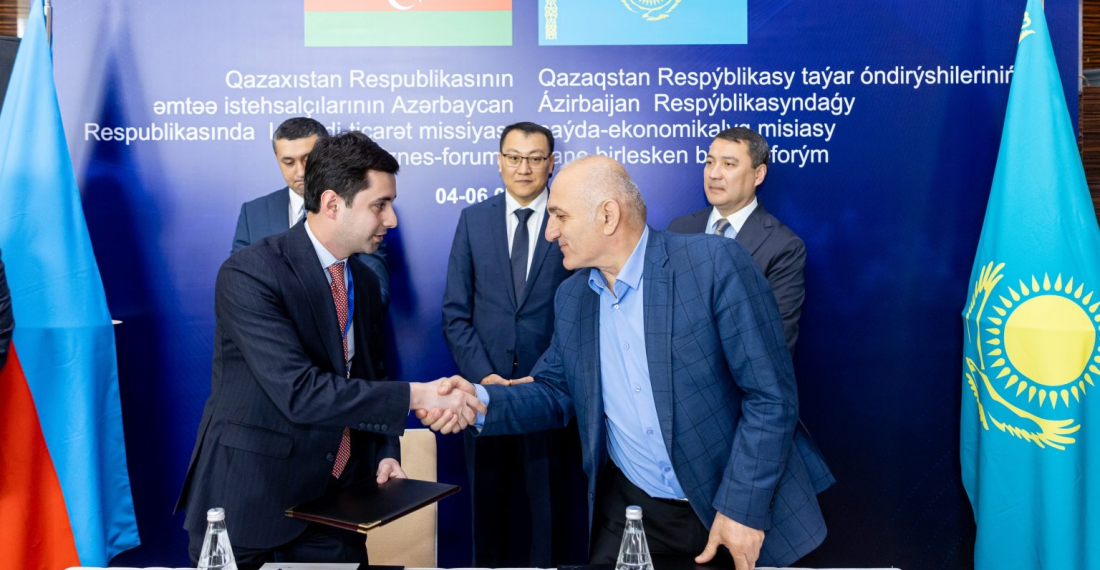Kazakh and Azerbaijani business leaders have signed contracts worth $55m during a trade and economic mission in Baku on Wednesday (5 April).
The export contracts concern the supply of batteries, sheet steel and food products, reports The Astana Times.
The event was attended by more than 100 Azerbaijani entrepreneurs and 20 Kazakh companies in food production, metallurgy and metalworking, IT services, chemical, construction, and engineering industries, who conducted business-to-business discussions.
The Kazakh Deputy Minister of Trade and Integration Kairat Torebayev said, "Kazakh entrepreneurs are interested in Azerbaijan’s market. However, the potential of our mutual trade is still not used even half. Markets of both countries have mutual demand for cooperation. We can develop the markets of third countries. Moreover, important international transport corridors pass through our territories."
Bilateral trade between Kazakhstan and Azerbaijan is increasing
Last year, the bilateral trade turnover between Kazakhstan and Azerbaijan reached $461.9 million, 39% higher than the previous year. More specifically, Kazakh exports to Azerbaijan increased by roughly 30% to $375.3 million, driven by a surge in the supply of crude oil, wheat, oil products, rails, cargo, passenger ships, and ferries.
The agreements signed in Baku came one day before an announcement that the President of Azerbaijan Ilham Aliyev will pay an official state visit to Kazakhstan on 10 April, underscoring an increasing strategic partnership between Astana and Baku that is developing across sectors.






